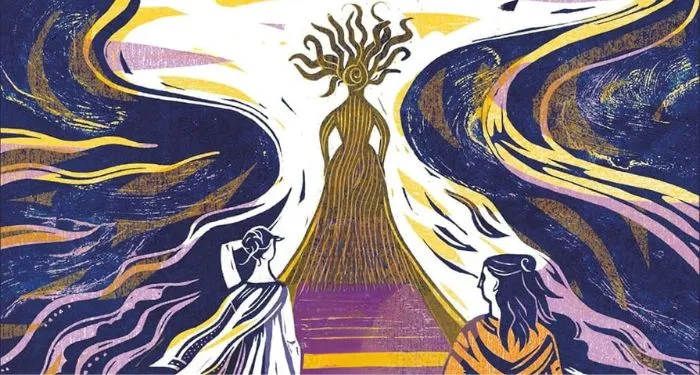
A Fresh Look at THE ILIAD, From the Eyes of a Commoner
Every holiday break, I’m drawn to myth retellings. Last time in Read This Book, I shared how much I enjoyed The Women of Troy. Now let’s look at The Voyage Home, which just came out at the end of 2024.

The Voyage Home by Pat Barker
Ritsa was once a free woman of Troy. Now she’s the personal enslaved person for Cassandra, the daughter of Priam, who is herself enslaved as a concubine to King Agamemnon. Cassandra and Ritsa are put on Agamemnon’s ship back to Mycenae, where his wife Clytemnestra waits to kill him. Before Agamemnon left for the battle of Troy, he sacrificed his daughter to earn the favor of the gods to gain a good wind to sail to Troy. Clytemnestra has been waiting for revenge ever since.
Cassandra once refused to sleep with the god Apollo, who then cursed her with the ability to accurately foretell the future, although no one would believe her. Cassandra predicts Agamemnon’s death to whoever will listen, only to have her warnings ignored. It looks like both Agamemnon’s wife and his concubine have the same goals. But Barker chooses to tell this story of Agamemnon’s downfall from the perspective of Ritsa. Ritsa brings a down-to-earth perspective on the machinations of royalty. Whether she works for Cassandra or someone else, she’s still enslaved.
The palace at Mycenae is haunted, the sounds of children murdered within its walls echoing throughout the drafty room. Handprints of the children appear on the wall, and Cassandra can’t seem to cover them up fast enough. Agamemnon’s family is always haunted by the violence they’ve enacted on each other.
With so many moving parts, The Voyage Home isn’t as focused or centered as the previous two entries into the series—The Silence of the Girls and The Women of Troy—but it still possesses the emotional depth and intimacy of the previous two novels. Ritsa gives readers insight into the life of a “common” middle-aged woman of Troy whose life is destroyed by the war. Her story is all the more captivating as her courage and resilience shine through on every page.
You can find me over on my substack Winchester Ave, over on Instagram @kdwinchester, on TikTok @kendrawinchester, or on my podcast Read Appalachia. As always, feel free to drop me a line at kendra.d.winchester@gmail.com. For even MORE bookish content, you can find my articles over on Book Riot.





